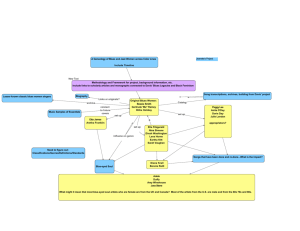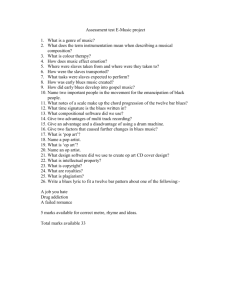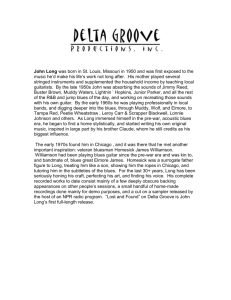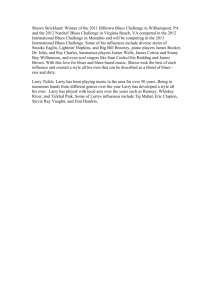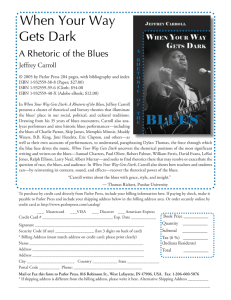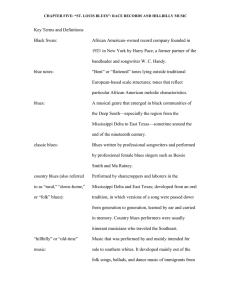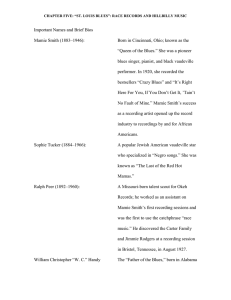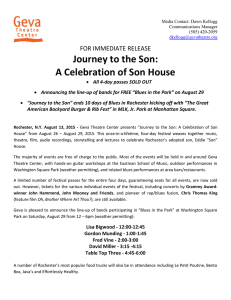Download handout on Math Anxiety Models here
advertisement
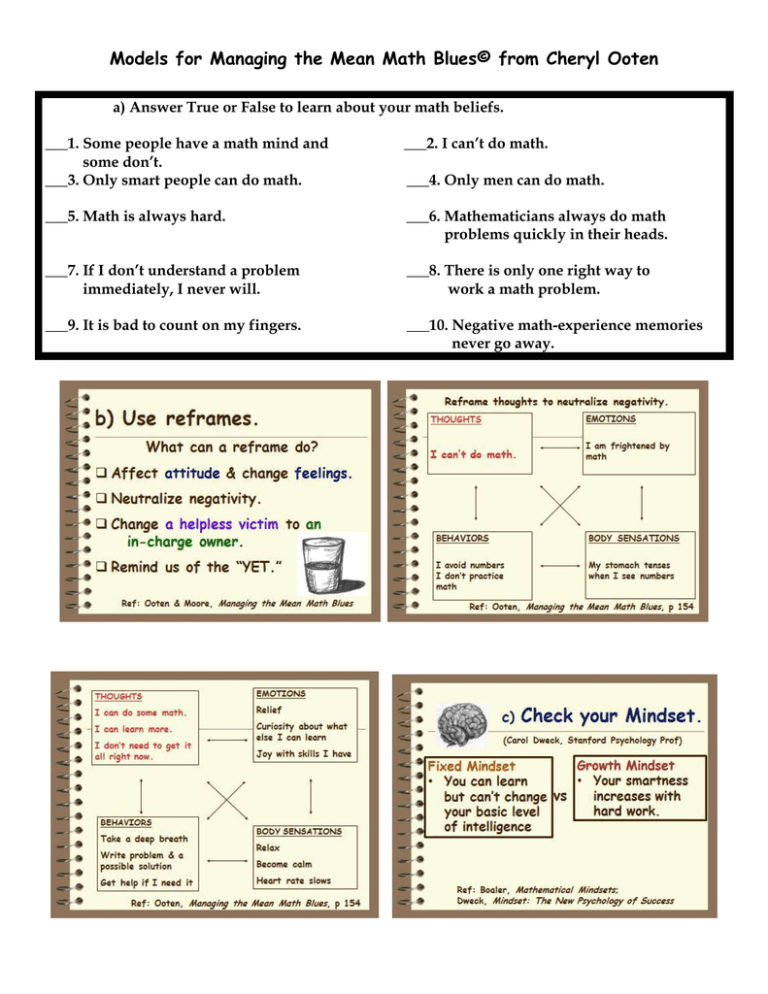
Models for Managing the Mean Math Blues© from Cheryl Ooten a) Answer True or False to learn about your math beliefs. ___1. Some people have a math mind and some don’t. ___3. Only smart people can do math. ___2. I can’t do math. ___5. Math is always hard. ___6. Mathematicians always do math problems quickly in their heads. ___7. If I don’t understand a problem immediately, I never will. ___8. There is only one right way to work a math problem. ___9. It is bad to count on my fingers. ___10. Negative math-experience memories never go away. ___4. Only men can do math. d) Anxiety comes from being required to stay in an uncomfortable situation over which we believe (think) we have no control. To lower anxiety: 1. Change “requirements” to “choices.” 2. Monitor and reframe negative beliefs. 3. Take charge actively. The True/False questions are all false negative math rumors. Here are reframes: 1. People are not born knowing math. We are influenced by the expectations in our learning experiences. It is never too late to learn more math. 2. I can do some math. If so, I can learn more—at any point in my life. 3. What are smarts anyway? It is effort that lets people learn math. 4. There is no research that shows a gender difference in learning math. 5. Some math is hard and some is easy. We often discount the math that we know. 6. This rumor is likely caused by what we see in the classroom. However, math teachers are doing problems quickly because they have done them many times and the problems are generally not at their “growing edge.” 7. It helps to say “I don’t understand yet.” Understanding takes patience & effort. 8. There are many right ways. This rumor often comes from a rigid teacher who is uncomfortable looking at different ways. 9. Fingers are a great model of our base-10 number system. Use your toes too! 10.New positive experiences can neutralize the negativity. A growth mindset works. References for Managing the Mean Math Blues Boaler, J. (2016). Mathematical mindsets: Unleashing students’ potential through creative math, Inspiring messages and innovative teaching. Jossey-Bass: San Francisco, CA. Boaler, J. (2015). What’s math got to do with it? Penguin Books: New York, N.Y. Dweck, C. S. (2006). Mindset: The new psychology of success. Ballantine Books, N.Y. Ooten, C. & K. Moore. (2010). Managing the mean math blues: Math study skills for student success. Pearson: Upper Saddle River, N.J.
